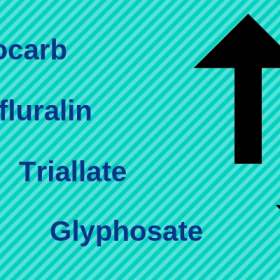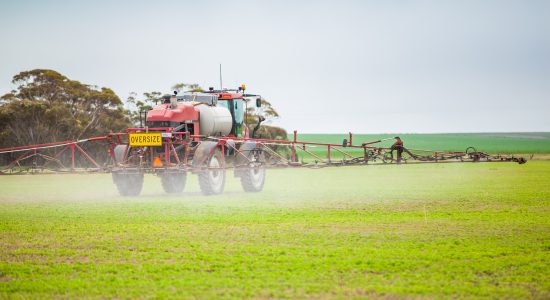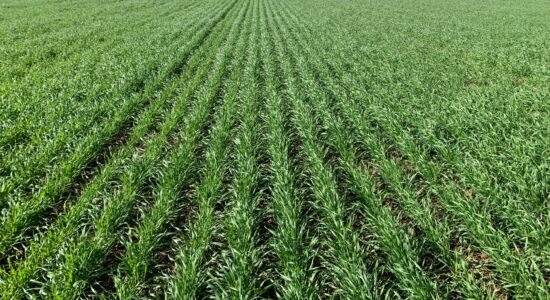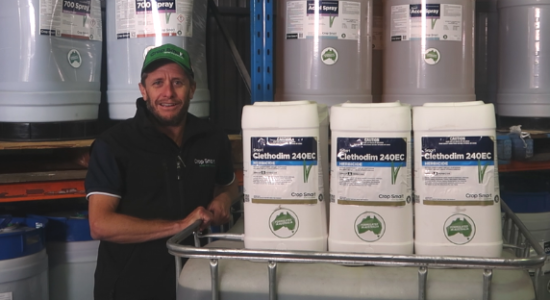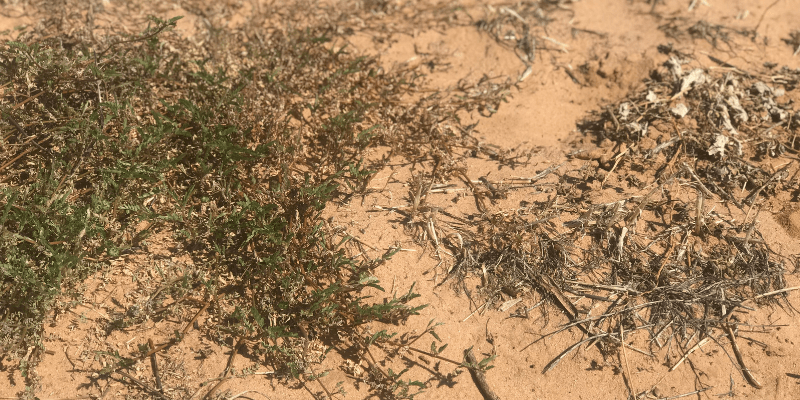
The key take outs from Dr Peter Boutsalis
Throughout March the well-respected herbicide resistance researcher, Dr Peter Boutsalis joined the Crop Smart team at events across SA and Victoria to provide growers with an update on his most recent herbicide resistance findings.
Dr Boutsalis gave an insightful presentation focusing primarily on what is causing herbicide resistance and how we can prevent it, and how to achieve maximum efficacy from our sprays.
Rotate the modes of action in pre-emergent herbcides to help control ryegrass
Dr Boutsalis referred to data from the national weed resistance surveys which identified resistance to pre-emergent herbicides from Groups D/J/K in annual ryegrass populations.
The resistance surveys found trifluralin (Group D) to have the greatest level of resistance; however, since the introduction of alternative MOA herbicides, the level of trifluralin resistance has been declining.
Dr Boutsalis highlighted the importance of using mixtures and rotations of pre-emergent herbicides to reduce annual ryegrass populations and delay the onset of resistance to individual pre-emergent herbicides. He stressed that not all pre-emergent herbicide failures would be due to resistance, as environmental factors can largely affect the performance of pre-emergent herbicides, along with late germination and poor application.
Due to the complexity and variance of resistance across paddocks, Dr Boutsalis identified resistance testing as a valuable tool to gain an understanding into which herbicides will still work for a population in the future. Dr Boutsalis and his team at Plant Science Consulting provide herbicide resistant testing services, to find out click here
To optimise glyphosate use quality products, robust rates and spray early and in good conditions
It doesn’t seem long ago but we first started using glyphosate in the 1970s and now there are more than 500 different glyphosate products registered in Australia!
There are several factors which contribute to glyphosate resistance, resulting in a poor kill rate. Some of these include the use of low rates, poor quality glyphosates and surfactants and spraying plants when under stressed conditions, e.g. heat or moisture stress.
A common strategy employed by some growers is to delay the application of glyphosate to maximise germination from the seed bank to treat all the weeds. However, research has shown that although glyphosate-resistant weeds are resistant at all growth stages, seedlings are more sensitive than multi-tillered plants. Weeds need to be treated based on their growth stage (younger vs. older plants); therefore multiple herbicide timings are recommended.
Other factors which affect glyphosate efficacy include:
- Water quality – glyphosate binds to positive ions in hard water
- Water volume – less is more 50-80L
- Product brand – use same brands as made to mix together
- Product mixing order
- Product quality
Temperature also plays a role in glyphosate performance with glyphosate being more active under cooler temperatures due to greater absorption into the plant. Under hot and dry conditions, it is likely there will be rapid evaporation.
In summary, when it comes to achieving the best glyphosate efficacy, there are several practices we can apply to get the most out of our sprays. Using premium quality products, higher label rates and spraying weeds while young will all play a large role in improving efficacy. In most regions it’s been an incredibly hot, dry and long summer, so weeds are stressed and even tougher to kill.
For more information on Dr Boutsalis’ talks, please contact your local Crop Smart Sales Rep.


